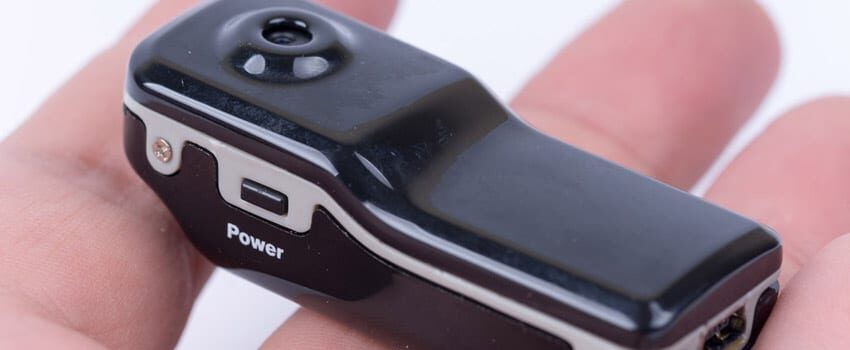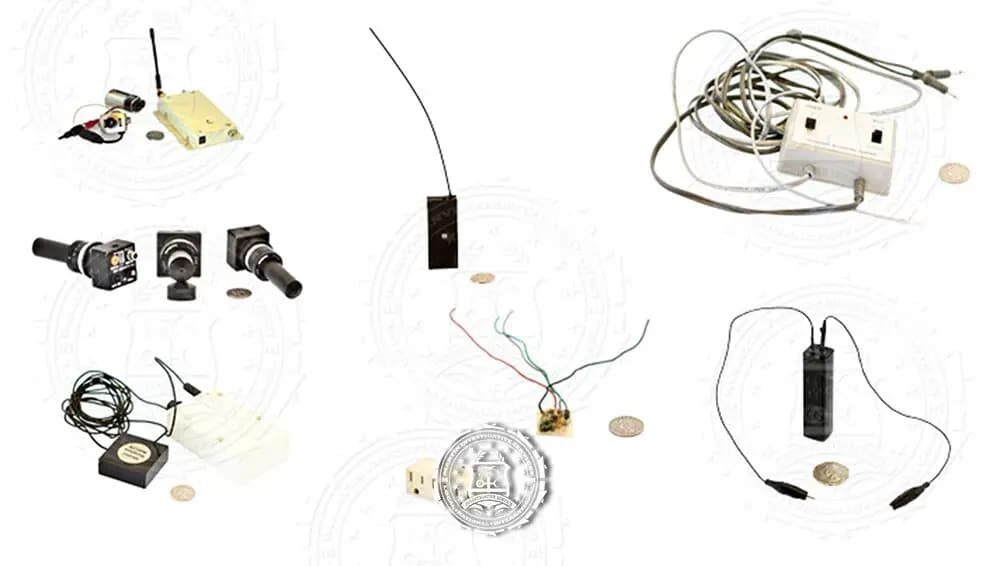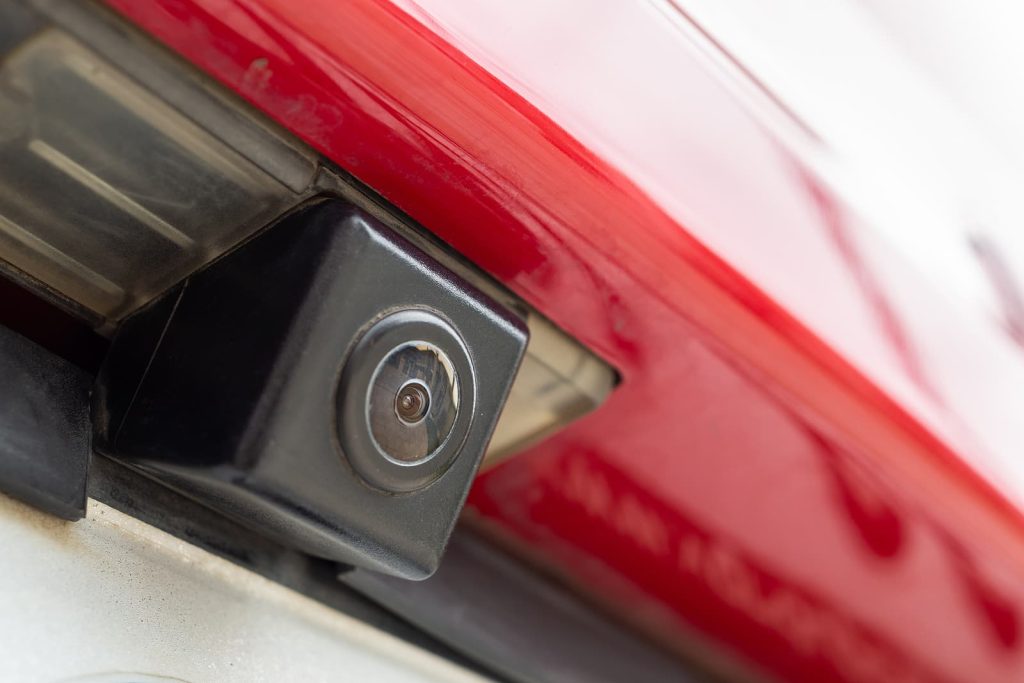How to Detect and Remove Hidden Tracking Devices from Your Car
As the era of technology advances, the barrier between safety and privacy is gone. The hidden tracking devices, once the stuff of spy movies, are growing increasingly common. The thought of someone knowing your whereabouts is chilling, even to those who log in occasionally. Whether you're worried about a stalker, suspicious partner, or even an overly invasive employer, the question looms: Who can look at your car to see if you have a tracking device?
This isn't paranoia. It's about protecting your home, yourself, your family, and your peace. Disguised, powerful, and impossible to discover without appropriate tools and training, tracking devices are available. If you think your car has been bugged, do it now.
What Are the Working Criteria for the Car Tracking Devices?
Car tracking devices that use GPS and cellular technology let you know where you are in real-time. These little gadgets are more than enough to be attached to your vehicle externally or internally in its interior and are almost impossible to find. Some are so small that they can be hidden behind license plates or tucked in the cracks of a dashboard.
Tracking devices typically fall into three categories:
Hardwired Trackers
Because these trackers are virtually undetectable without your having access to the vehicle's cabin and breaking down the interior, these trackers are permanently connected to your car's electrical system. As long as your vehicle has power, though, they stay operational.
Battery-Powered Trackers
These trackers are portable and can be placed anywhere, from under the car to the trunk. Their battery life lasts only a short while, but their convenience is convenient for covert tracking.
OBD Trackers
Installation and removal of these devices are easy—plug them into your car's On-Board Diagnostics (OBD) port. However, they are more visible during routine inspections, which deters them.

Warning Signs: Is There a Device Tracking Your Vehicle?
What should you know to confirm your car had been 'bugged'? While some signs are subtle, others are more obvious:
- Unexplained Battery Drain: When you add hidden trackers to your vehicle, it will draw power from it, depleting your battery even faster than normal.
- Strange Noises or Static: A red flag is if your car's radio starts to produce interference, footfalls, or beeping sounds.
- Unfamiliar Objects: If you find any unfamiliar gadget or wire inside or around your car, then it's a telltale sign that something is out of order.
Trust your instincts. If something doesn't feel right, it's known to be investigated.
Checking Your Car for Tracking Devices
A thorough inspection of your vehicle will be the first step to reclaiming your privacy. You can do a check yourself, but if you want to do it right, you need to know where to look and hire a private investigator.
Exterior Inspection
It often includes tracking devices hidden under inconspicuous spots on the outside of a car. Common locations include:
- Beneath the bumpers
- Inside wheel wells
- Under the chassis
You should then use a flashlight with a mirror to examine these areas in depth. Look for anything that looks like it doesn't belong, such as strange boxes, wires, or magnets.
Interior Inspection
If it's clear on the outside, move inside. Search for hidden devices in the following areas:
- Under seats and floor mats
- Behind the dashboard panels
- Glove compartment or trunk
Just remember that tracking devices are meant to be discreet. Take your time on the search.
Common Hiding Spots
Experienced trackers often choose unconventional locations to hide devices, such as:
- Behind the license plate
- Inside the engine bay
- Near the spare tire

Advanced Detection Tools
If this doesn't work, it may be time to bring technology to the table to even things up.
GPS Bug Detectors
A GPS bug detector looks for the signals of hidden trackers. Waving the detector around your vehicle will direct you to areas where tracking devices can be found transmitting information. Work on high-risk areas such as the undercarriage, dashboard, and trunk.
Signal Detection Techniques
Radiofrequency (RF) signals are used to track the positions where devices have been placed. You can detect these transmissions using RF detectors or some special apps. To improve accuracy, do your inspection in a quiet, lower-interference environment at an empty parking lot.
Reviewing Results
But if your detector lights up at a suspicious signal, be careful. Look at the source without damaging your vehicle. Of course, not all signals are trackers—modern vehicles have many sensors and devices that generate signals.
Removing a Tracking Device
The finding of a tracker is only half the battle. It takes precision and caution to remove it.
Confirm the Device
There are also trackers that are factory-installed. Before you do anything, check to see if the object in question really is a tracking device.
Manual Removal
Disengage the device without injuring your vehicle wiring. If the situation turns to legal business, hire a professional private investigator. Call us today at 800 577-1080
Legal Considerations
If your tracker was placed there by your employer or law enforcement, you may be in violation of the law if you try to tamper with it. But before doing that, it's good to consult a private investigator or attorney to avoid possible consequences.
Professional Bug Sweep Services
DIY methods seem overwhelming or inconclusive; in these circumstances, hiring a professional is your best bet.
What to Expect
Those who professionally bug sweep are taught to locate and remove tracking devices expertly. Their high-tech tools and expertise allow them to give an in-depth inspection, and you can rest assured that you're tracker-free.

Services: Description & Cost
Such inspections are priced based on the size of the car, the time it takes to search, and the kind of car being inspected.
- SWEEP OF A RESIDENCE UNDER 2,000 SQ. FT. $3,975.00
- SWEEP OF A HOME OVER 2,000 SQ. FT. Is $1.85/SQ. FT.
- ELECTRONIC EAVESDROPPING DETECTCION OF A BUSINESS IS $2.35/SQ. FT.
- VEHICLE SWEEPS: $1,975.00
Preventing Future Tracking
After you remove all trackers from your vehicle, take some preventive steps to protect your privacy.
Anti-Tracking Devices
Invest in GPS signal jammers or RF transmitters that block signals. For example, faraday pouches can shield your keys from signal relays.
Secure Parking
Lamentably, even if you do not have an expensive gadget or item stashed away in your car, most criminals are looking to gain access to it and take something small, such as a wallet from the glove compartment or charging cables from the middle console. Just don't leave your car unattended in an unknown spot for a long time.
Routine Inspections
Get into the habit of looking your car over. Preventing unwanted surveillance goes a long way in a monthly check.
Conclusion
When you discover a hidden tracking device, you are not only invading your privacy but also violating your basic right to safety. It can be scary to think that you are being tracked, but you aren't powerless.
When you start taking swift action with the right tools and seeking professional help when needed, you'll regain your personal space.
If you can't get anywhere with the inspections, you need to call in the professionals. At Martin P.I., we serve all 50 states and guarantee positive results. Our team comprises former DEAS, IRS, FBI, and Secret Service agents. For more information, please don't hesitate to contact us at (800)577-1080.
“WE ARE THE 5-STAR REVIEW LEADER IN OUR INDUSTRY”
Our agency has helped thousands of clients throughout our 50 years of Investigative Services. Read more on what others are saying about us and contact us for a discreet one-on-one discussion on your matter. You’ll be glad you did!
We serve clients in all 50 states and numerous foreign countries.
FAQs
Are tracking devices legal?
It depends. Trackers are prohibited for private use, but law enforcement can install them with a warrant.
Exactly how much does professional detection cost?
Searches generally range in price from $500 to $5,000, dependent upon level of complexity.
For how long do tracking device batteries last?
Battery life varies. Some of these devices can last a few days, while others are hardwired and can keep working forever.
At what point should I have my car checked for car trackers?
If you park in a public or unfamiliar area a lot, you should have regular inspections.
Can an asset search be conducted discreetly?
Martin Investigative Services
Martin Investigative Services office is located at 620 Newport Center Dr Suite 1100, Newport Beach, CA 92660
Open: 24/7
Phone: (800) 577-1080

